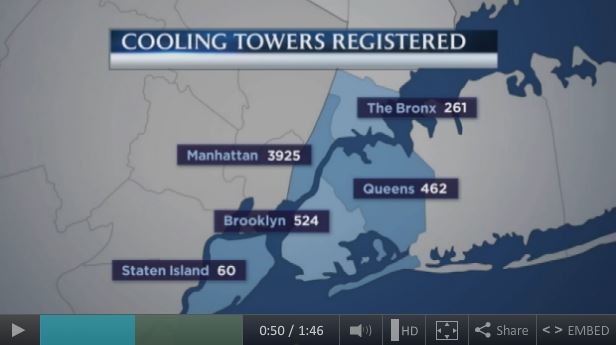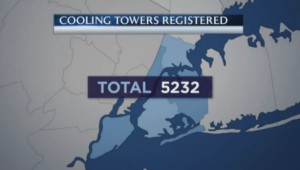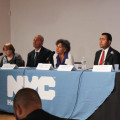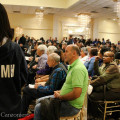The Health Department today published final rules governing the operation and maintenance of cooling towers. The local law – created in partnership with the City Council in response to the Legionnaires’ disease outbreak last summer – authorized the Health Department to establish rules to enforce the measures outlined in the bill. The City estimates that 3,500 buildings have at least one cooling tower and are affected by the announced regulations. Last August, Mayor Bill de Blasio signed first-in-the-nation legislation that required the registration of all cooling towers, development of maintenance and management plans, quarterly inspections, reporting to the Health Department when testing detects increased levels of Legionella bacteria, and annual certification that the owner has complied with these requirements. The legislation also mandated the disinfection of cooling towers with levels of Legionella that pose potential health risks. Violations of these requirements are subject to civil penalties up to $10,000. Failure to disinfect towers with increased microbes are classified as misdemeanors, punishable up to $25,000. The rules can be found here and will go into effect Monday, May 9th.
“These rules continue the Administration’s aggressive approach to ensuring cooling towers are properly maintained,” said Health Commissioner Dr. Mary T. Bassett. “I thank Mayor de Blasio and the City Council for their commitment to establishing these comprehensive and fair regulations that were developed with input from cooling tower operators, building owners and health scientists. New York City will lead the nation in its oversight of cooling towers, which here and elsewhere have been associated with large community outbreaks.”
“The City’s leadership on this issue is in keeping with the Department of Health’s distinguished tradition, going back generations, of protecting public health,” said Assembly Member Richard Gottfried, Chair of the New York State Assembly Committee on Health.
“As chair of the Committee on Housing and Buildings, I’m pleased that the Department is moving forward on better protecting the people of New York against outbreaks of Legionnaires,” said Council Member Jumaane D. Williams. “With the legislation adopted in the Housing committee and the full Council, combined with these new rules, New Yorkers can feel greater confidence that the 3,500 buildings with cooling towers will no longer serve as breeding grounds for an unfortunate – albeit treatable- disease, Legionnaires.”
 
“I’m pleased with these rules and proud that they are the product of a cohesive conversation between the community, the City, and experts in the field. Preventing another Legionnaire’s outbreak is something the Mayor, the Health Commissioner, and I take incredibly seriously. This summer, cooling towers in New York City will be monitored more stringently than ever before and I hope that our diligence in this area plays a part in our overall efforts to improve the health of the Bronx community, “ said Council Member Vanessa L. Gibson.
“Forty years after its discovery, we know that Legionnaires’ disease can be prevented by stopping the growth of Legionella bacteria in water systems like cooling towers,” said Janet Stout, PhD, President and Director of the Special Pathogens Laboratory in Pittsburgh. “The simple proactive steps described in the New York City rules will prevent outbreaks, save lives and serve as a national public health model for the prevention of Legionnaires’ disease associated with building water systems.”
“With release of the new regulations, the NYC Health Department is demonstrating strong leadership in decreasing contamination of cooling towers and protecting the public from Legionnaires’ disease,” said Dr.Ruth L. Berkelman, Director for the Center for Public Health Preparedness and Research at Emory University.
The new rules include requirements that building owners perform a risk assessment and develop a comprehensive plan detailing the personnel responsible for performing daily, weekly, quarterly and annual activity to mitigate identified risks. Building owners need to test water chemistry at least three times a week, install devices to help reduce the drift of mist, maintain continuous disinfection, test for Legionella bacteria at least once every 90 days, and fully clean the towers at least twice a year. Additionally, cooling towers and evaporating condensers that had been shut down for winter must be cleaned and disinfected before starting up again. The new rules require that cleaning and disinfection shall occur within 15 days before the cooling tower is activated.



















Follow Us